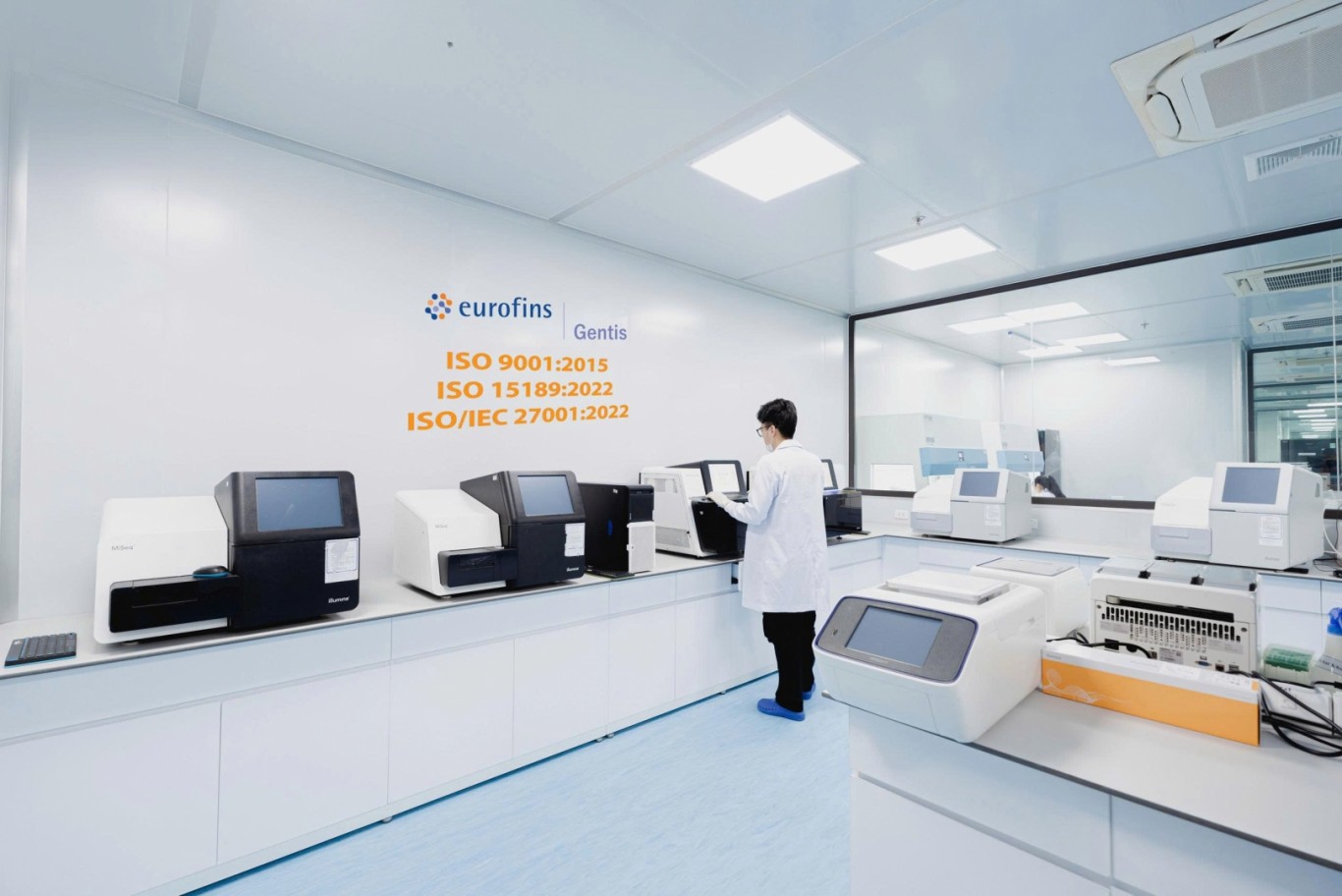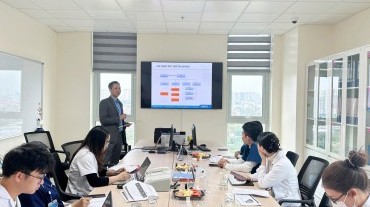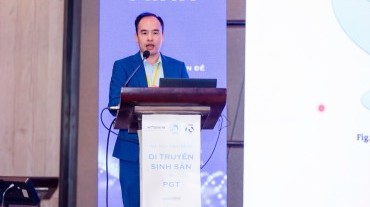Detecting Balanced Translocations in Preimplantation Embryos Using PGT Technology
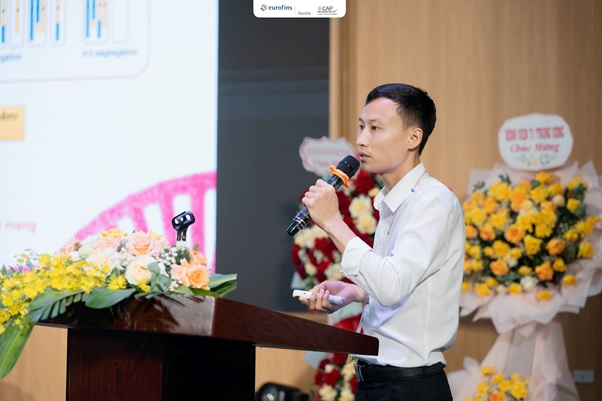
MSc. Nguyen Van Huynh (GENTIS Specialist) presented the advantages of PGT-UPGRADE testing.
The detection and analysis of balanced translocations in preimplantation embryos are opening a new chapter in the search for "healthy seeds of life" for couples undergoing infertility treatment. This advanced technique enables the screening of potential genetic abnormalities from the earliest stages of embryonic development, allowing for precise selection of the best embryos for uterine transfer.
One of the most notable breakthroughs today is PGT-UPGRADE—a deep genetic analysis method developed by GENTIS using international-standard Next-Generation Sequencing (NGS) technology. In addition to comprehensively detecting aneuploidy across all 24 chromosomes, PGT-UPGRADE is specialized in identifying genetic balanced translocations—a factor that conventional tests often miss but may be the root cause of recurrent miscarriages, IVF failure, or congenital abnormalities.
In clinical practice, PGT-UPGRADE helps screen and select embryos that do not carry the same balanced translocation as either parent, thereby minimizing the risk of passing genetic abnormalities to the next generation and eliminating reproductive complications caused by such translocations. It is the optimal solution for couples with balanced translocations—allowing proactive selection of genetically normal embryos, increasing IVF success rates, reducing pregnancy risks, and offering the chance of welcoming a healthy baby.
Zygote Formation Abnormalities in IVF and Detection Methods
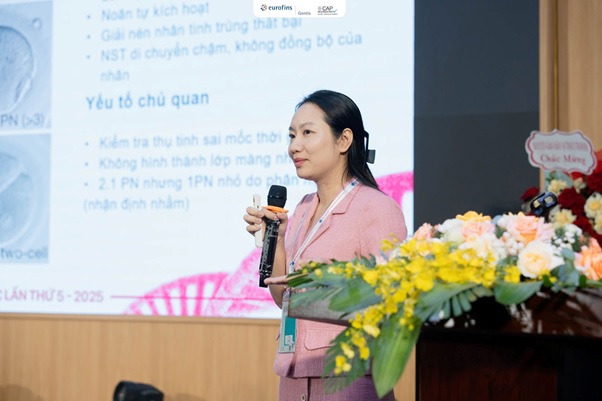
Dr. Bui Thi Phuong Hoa (Head of Research and Training Department – Hanoi Hospital of Andrology and Infertility) presented on abnormalities during in vitro fertilization and their detection.
In IVF procedures, abnormalities in zygote formation are one of the main causes of implantation failure and unsuccessful pregnancies. These may include chromosomal number anomalies or genetic mutations that lead to severe disorders.
Today, the detection of such abnormalities relies heavily on advanced genetic testing technologies such as chromosomal analysis using NGS or CGH array methods. These tests allow early detection of abnormalities that might affect IVF success, enabling physicians to make appropriate decisions in selecting healthy embryos for transfer.
With support from these modern detection methods, IVF failure rates have significantly decreased. This not only helps families save time and costs but also minimizes the risk of passing hereditary diseases to their children. The increasing accuracy of these methods is building strong trust among couples on their journey to parenthood.
Developing Interpretation Software for Newborn Screening Using LC-MS/MS
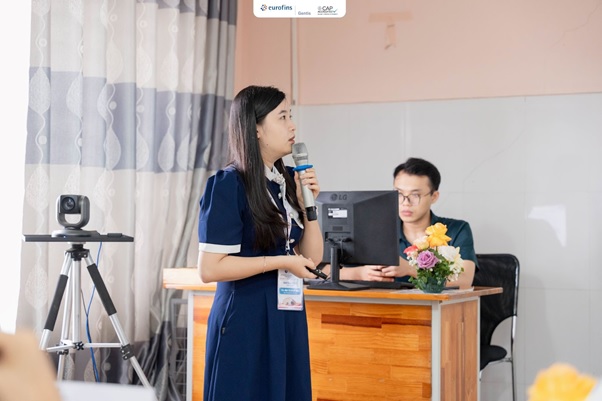
MSc., Resident Doctor Dinh Thi Quynh Ngoc (GENTIS Specialist) reported on the development of interpretation software for newborn screening results using the LC-MS/MS method.
Newborn screening is one of the key measures for early detection of genetic and congenital metabolic disorders that can seriously affect the health and development of infants. Among screening techniques, Tandem Mass Spectrometry (UPLC-MS/MS) is increasingly becoming a modern method for accurately identifying abnormalities from birth. However, one of the current major challenges is result interpretation—which requires a combination of high precision and rapid processing speed.
To meet this need, the development of interpretation software for newborn screening using mass spectrometry has emerged as a breakthrough in enhancing healthcare service quality. These software solutions automate the entire data analysis process and assist doctors in making timely and accurate clinical decisions—from monitoring to treatment.
In particular, leading institutions in genetics in Vietnam, such as GENTIS, are investing in building advanced interpretation systems that optimize analysis performance and reduce errors during result reading. The participation of experienced units like GENTIS not only enhances the reliability of screening systems but also promotes the application of high technology in precision medicine in Vietnam.
GENTIS – A Trusted Partner in the Diagnosis and Treatment of Genetic Disorders
GENTIS has established itself as a pioneer in genetic technology research and application, providing accurate testing services along with diagnostic and treatment support software. With advanced technologies and a team of experienced experts, GENTIS remains a reliable partner for hospitals, clinics, and genetic research centers. In addition to developing technical solutions, GENTIS also offers consultation to support physicians and families throughout the treatment process.
Thanks to continuous technological advances, methods such as PGT, newborn screening using mass spectrometry, and result interpretation software are transforming how genetic diseases are diagnosed and treated. As a leader in genetic testing, GENTIS not only improves healthcare quality but also helps reduce the prevalence of preventable genetic conditions.

